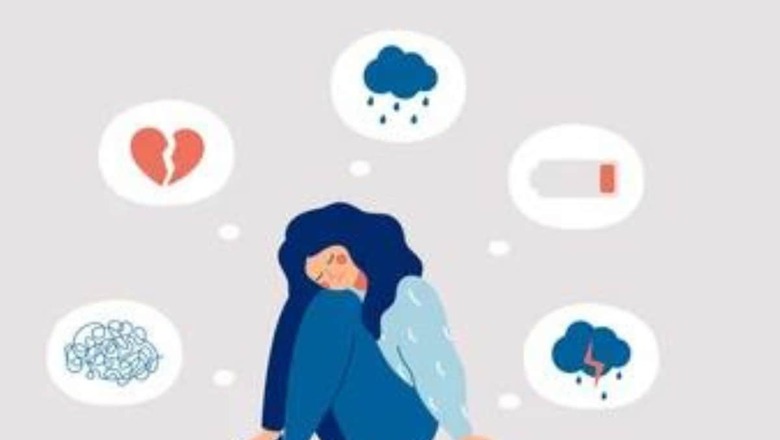
views
For the longest period, people treated the concept of mental health as something alien. Even in today’s day and age, the society often fails to grasp that one’s physical and mental health are both intertwined. However, the awareness needs to go up many a notch from where it currently lies at the moment.
Dr Madhusudan Singh Solanki, Senior Psychiatrist and head Dept of Mental Health & Behavioral Sciences Max Smart Super Speciality Hospital Saket, says, “It is now a known fact that your mental and physical health are deeply interlinked and connected to the point that either one can’t function optimally in isolation.
Your emotions and feelings affect your physical body—for example, anger makes your heart pump more blood, blood pressure goes up, breathing becomes faster and many other changes occur at hormonal, neural and neuromuscular levels beyond our conscious awareness. Now imagine how mental states like persistent stress, depression or anxiety would impact your physical health in the long term.”
He further added, “Studies have shown that physical health disorders get worse if depression or anxiety coexist with them, in terms of worsening of parameters, poor response to treatment, poor compliance with treatment and increased chances of complications. 25-45% of cardiac patients also have depression or anxiety, and 30-35% of patients with stomach and gastrointestinal disorders like celiac or Crohn’s disease have depression. 30% of patients with diabetes have depression, 50-60% % of patients with lung disorders like asthma have underlying anxiety or depression, 30 % of post-stroke patients have depression, 50% of patients with Parkinson’s disease and Alzheimer’s have depression, 40 % of patients with HIV have depression, 20-24 % of patients with cancer have anxiety/depression.”
It must be noted that untreated mental health issues worsen physical disorders and reduce treatment efficacy.
Ms. Sigal Atzmon, Chief Executive Officer and Founder, Medix Global, stated, “The recognition of the Indian culture demonstrates the understanding that the complex relationship between body and mind is of utmost importance. Practices such as yoga and meditation show a deep-rooted belief in the fact that attending to a body can never be separated from attending to a soul. In the light of neuroscience, when studying meditation, our brain does have a system to expel maladaptive thoughts and restructure the brain.”
“MRI scans show, that along with activation involving emotional and cognitive centres of the brain, there are widespread changes in the brain resulting from meditation. According to the Cochrane study, yoga can enhance the quality of life in breast cancer sufferers. Yoga can decrease anxiety, depression, fatigue, and stress, and improve sleep mood and spiritual health, as shown in a review study,” she added.”
Ms. Atzmon also spoke about how within the Indian culture and in scientific research, there is a close connection between physical and mental wellbeing that is showcased. The practices of yoga and meditation emphasize the integral relationship between the body and the mind. This connection has been confirmed by modern neuroscience, which shows that meditation can enhance one’s mental health.
Studies also indicate that stress affects both the physical and mental aspects of a person, which can lead to the development of medical conditions such as autoimmune diseases and cancer progression. Understanding this interconnectedness is crucial in promoting a comprehensive view of health that encourages individuals to prioritize their overall well-being, contributing to better community and individual health.


















Comments
0 comment